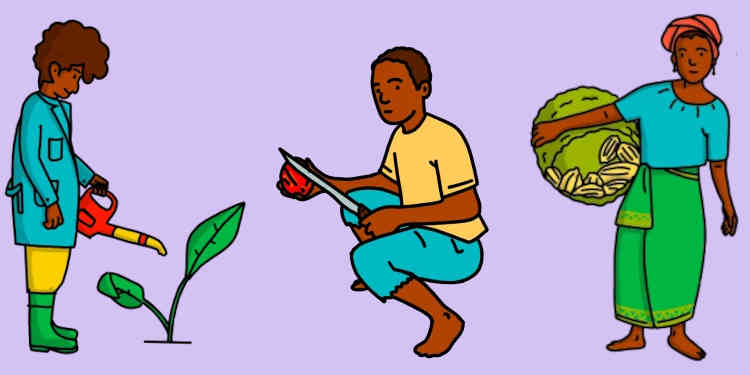If you enjoy chocolate as much as I do and if you have a sense of justice, then like me, you face a dilemma.
It is common knowledge that the chocolate supply chain hasn’t always been very ethical. Eating choclate can amount to tacitly supporting slave labour, poor working conditions, or environmental harm.
But fortunately there is a way to enjoy chocolate with a clear conscience. Read on to find out more, or jump straight to information on ethical manufacturers.
Issues in the chocolate supply chain
You probably know this, but let’s just refresh.
- Historically, workers on cocoa plantations, primarily in West Africa, haven’t always been paid a living wage. Child labour has been common, denying those children opportunities for healthy growth and education.
- Pesticide use is high and often harmful to both environment and workers.
- Deforestation and climate impacts are still occurring.
Slow to act
Chocolate companies are big business, collectiovely worth more than $100 billion worldwide (estimates vary from $40 bn to $200 bn). The larger companies have been slow to admit the problems, and slow to act to make positive change. They can afford to make the necessary changes.
Progress has been made in the last decade or two. Many of the larger companies have set up schemes that claim to redress the problems by paying higher wages, providing education for children of workers and developing more sustainable environmental practices.
But much still needs to be done. And some of what is claimed isn’t clear to neutral observers because company processes aren’t transparent.
Consumers can make a difference!
You and I can be part of making a difference and helping poor families receive a living wage and allow their children to have a childhood and an education.
We can support more ethical practices when we buy our chocolate, even if this raises the price slightly. The trick is knowing which companies we can trust.
Independent certification
One way is to only choose chocolate manufactured by companies that have been independently certified by organisations like Fair Trade and Rainforest Alliance. (A third scheme, UTZ, has been incorporated into Rainforest Alliance and is being phased out.)
This is an excellent way for us consumers to know our purchase is supporting an ethical company. Unfortunately, many major manufacturers have declined to obtain certification because, they say, they have to use various sources and it is difficult to obtain and comply with certification all the time from all sources.

Chocolate scorecards
Another option is to check out a chocolate scorecard where independent bodies have assessed a wide range of manufacturers and distributors for a range of relevant factors and summarised their findings in an easy reference.
One such chocolate scorecard is produced by Aussie organisation Be Slavery Free.
Be Slavery Free is a coalition of civil society organisations committed to sustainable development and the eradication of slavery. It partners with a large number of Australian and overseas organisations with an interest in ethical business practices (this includes Universities, consultants and civil society groups) to work with companies, educate consumers and support change through innovation.
The latest Scorecard assessments have recently been published. The assessments are based on six factors:
- Traceability and transparency
- Living income
- Child labour
- Deforestation and climate
- Agroforestry
- Pesticides
The scorecard assesses 38 medium and large companies, 9 small companmies and 16 retailers.
So who is ethical?
Go to the scorecard to see all the ratings. Here are a few take home messages.
The most ethical chocolate (just falling short of maximum points) is Tony’s Chocolonely. Only two other of the medium large brands (Ritter Sport and HALBA) were rated in the top category. Five out of nine smaller brands were top-rated.
The second highest category included Mars Wrigley (makers of Mars, M&Ms, Snickers, Maltesers, etc) which is the world’s largest chocolate manufacturer, and Whittaker’s, a New Zealand brand available in my local supermarket in Australia. Whittaker’s has now become my brand of choice.
Among the world’s other top chocolate companies:
- Nestlé, Hershey’s and Ferrero also rate in the second category, but are significantly below the above brands. (I was a little surprised that Nestlé rated so highly as they have been much criticised in the past.)
- Lindt & Sprüngli has a poor rating (third category = “needs improvement”). Mondelez (makers of Cadbury) and Meiji score even lower in the “needs improvement” category.
Among smaller brands, Alter Eco rates in the second category.
I don’t know how retailers are assessed, but the major ones I know of in Australia (Coles, Woolworths, K-Mart, David Jones) rate very poorly. Aldi rates a little higher.
Let’s eat ethically (as much as possible)
It should be possible for all of us to find readily available brands in the top two categories. It seems that purchasing somewhere else other than the large retailers may be best.
Main graphic: Be Slavery Free.




